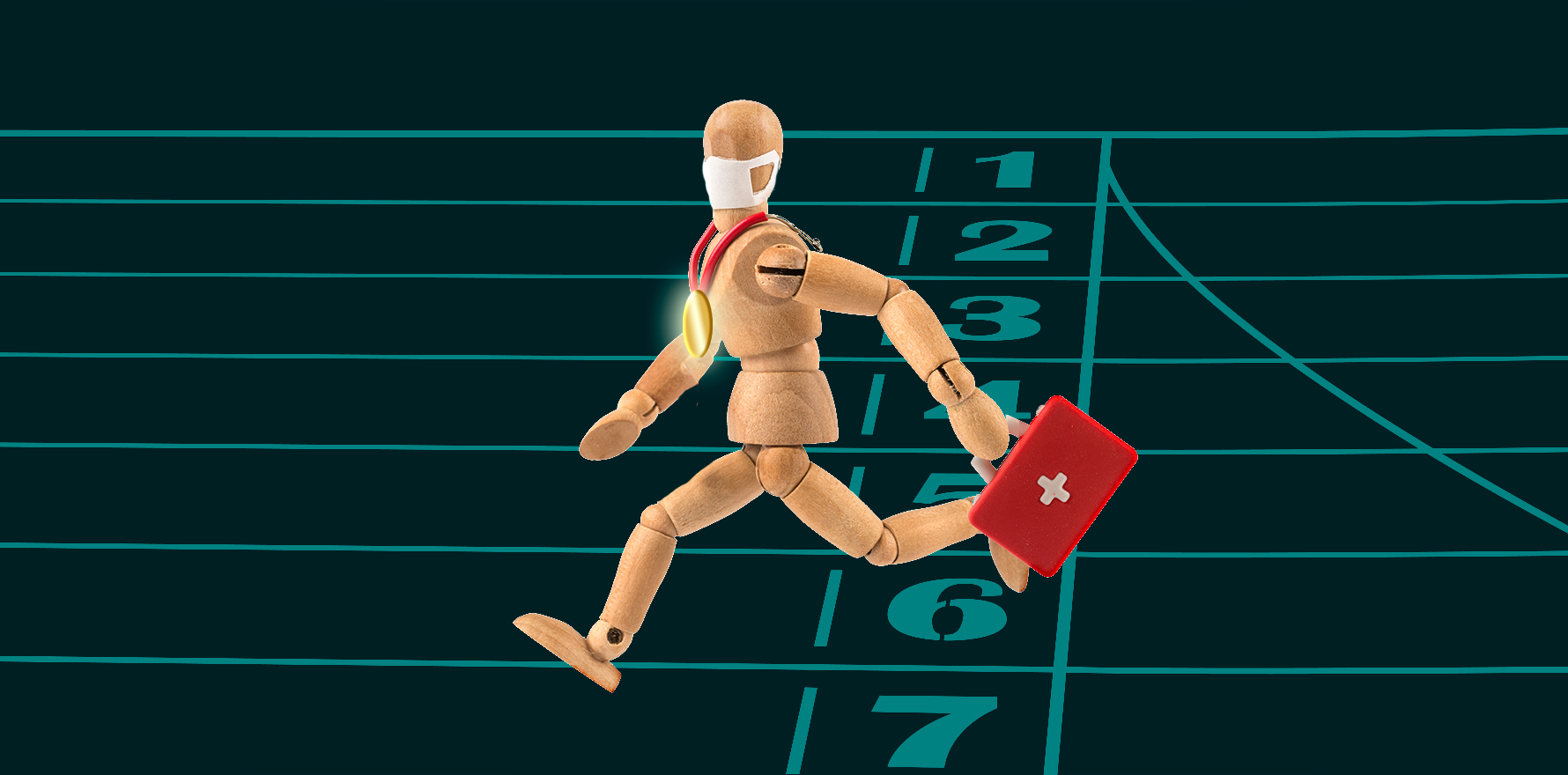Rheumatology and the Olympic Games cross paths more often than you’d think – and that’s in a good way.
The rheumatology community has long-standing links to the Olympics, dating as far back as 1920.
Rheumatology pioneer Jacques Forestier, known for introducing gold salts as a treatment for rheumatoid arthritis, won a silver medal playing rugby for France in the Antwerp games.
He was followed by plenty of others. Dr Beth Hazel, for example, swam for Canada in the 1992 Barcelona Games. US Rheumatologist and cyclist Dr Christine Thorburn balanced her studies and workload (how??) with training and competing in the Athens and Beijing Olympic Games.
Olympians with an RA diagnosis also abound. Canadian Spencer O’Brien, one of the world’s top snowboarders, was diagnosed with RA two months before taking part in the 2014 Winter Olympics. She went on to compete again in 2018. Speed skater Kristine Holzer (2006 Winter Olympics) was diagnosed with JRA when she was 13.
The Olympic Games, whatever their faults, tend to inspire people. If you’re sporty, it injects something extra into your laps of the local pool or oval. Every time you snap your goggles into place or bend to tie a shoelace, you feel a kinship with your Olympic brothers and sisters.
Sometimes even those of us who don’t categorise ourselves as fitness types catch a bit of it too.
That’s what rheumatologists were hoping for in the wake of the 2012 London Olympic and Paralympic Games. What better time to convince patients of the benefits of physical activity and get them to take it (and keep it) up?
It didn’t quite pan out that way unfortunately. Out of 253 rheumatology patients enrolled in the UK study published in the Journal of Clinical Rheumatology, only 27 (16%) were motivated by the Games to do more physical activity, despite the fact that increased participation in sport was a legacy goal for the city of London.
It seems like a bit of a missed opportunity.
Now we’ve got Tokyo 2020 – a year later than scheduled, amid a global pandemic, in front of empty, silent stands. With few welcome distractions, the stories of triumph and disappointment, of exceptional talent and hard slog, are even more captivating than usual. Victories send spirits up (or at least the corners of our mouths), and losses elicit empathy and admiration (good on ya for just being there).
Dr Damien McKay is a Sydney Paediatric and Adolescent Rheumatologist who has served as a Scientific Advisor to the International Olympic Committee.
He has a framed jersey on his wall – a gift from a young patient who wore it representing Australia at the Youth Olympic Games.
“When I make a new diagnosis of juvenile arthritis, you can see fear going through the family’s eyes,” he said. “This is their 14-year-old who loves sport.”
“And so, I often use that patient and that jersey as an example of how my job is to control your arthritis and your job is to do whatever you want to do in life.”
Apart from the inspiration value, Dr McKay believes the Olympics is a chance to ask the broader question of how sports medicine can help with the management of rheumatology patients. Sports rehabilitation principles can be very helpful, and even the tools used in elite sports, like GPS monitoring and accelerometers, have potential for use.
“A lot of sport at that elite level is aiming for that 1% increase, and in some of our patients that is relevant to aim for,” he explained.
For many of his patients, being able to play sport is part of their identity. “It’s important for their mental health, their physical health. It’s important for engagement with their peers, for self-worth and self-esteem, and living what they consider to be a normal life.”
And, because of huge therapeutic advancements in the last couple of decades, he says patients are functioning at a range of levels. “Our predominant focus is still getting them to school, but it’s a much wider range now, so we’re often making decisions on how to get a patient to the National Championships or the Olympics,” he said.
The Olympics can also be a nudge to remember the role of exercise in treatment, said Dr McKay, who in addition to his rheumatology expertise has a background in sports medicine and physiotherapy.
“We’re not necessarily good at assessing aspects of physical fitness in our everyday consultations,” he explained. “And exercise should be prescribed, in the same way that medicine can be prescribed, with frequency, intensity, time and type.”
So, those late hours on the couch (or leaping up from it) cheering on the Matildas, marvelling at the gymnastic artistry, agog at 13-year-olds taking out medals in skateboarding, can ultimately have an impact on your practice and the lives of your patients.
Tokyo 2020 is set to have a very different place in our collective memories than its predecessors. Perhaps for the rheumatology community, its legacy can be both positive and lasting.


